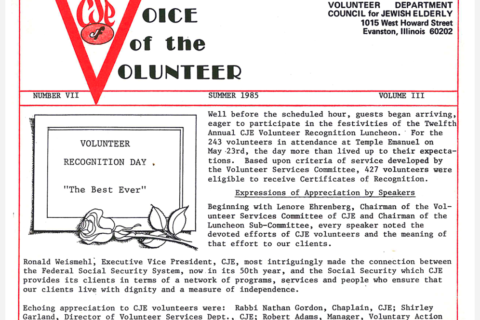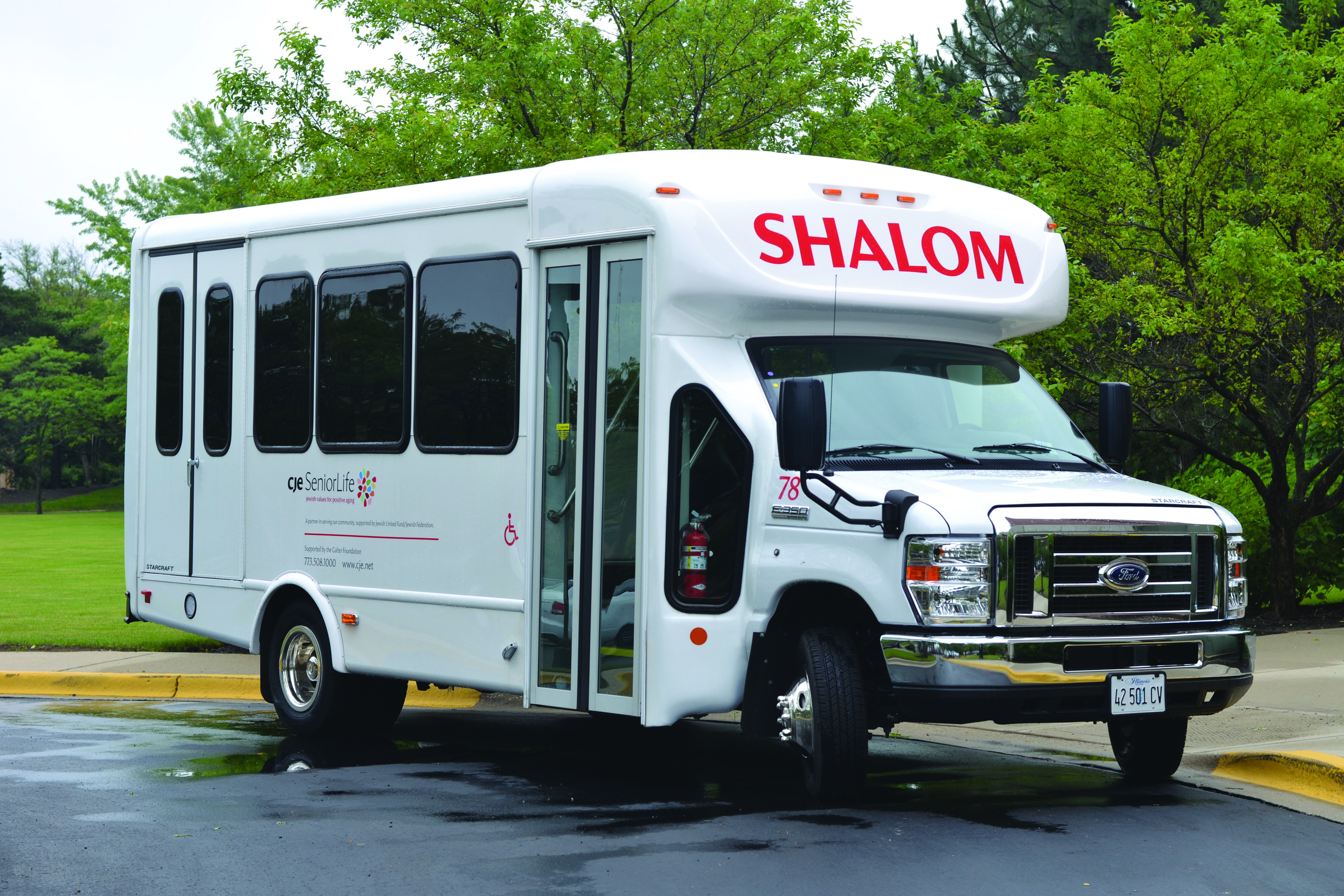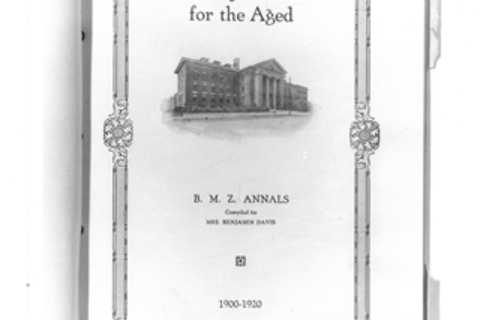1970-1985 Timeline
In the Beginning: Founding CJE: 1970-1985
In 2022, we are celebrating our 50th anniversary by diving into CJE’s history. In this Spring magazine and subsequent issues in our milestone year, we explored significant accomplishments and historical moments from our organization’s past through 2022. Test your CJE knowledge, starting with this issue’s “CJE is 50” retrospective series overview, from the years leading up to our founding in 1972 to our development of innovative community-based services.
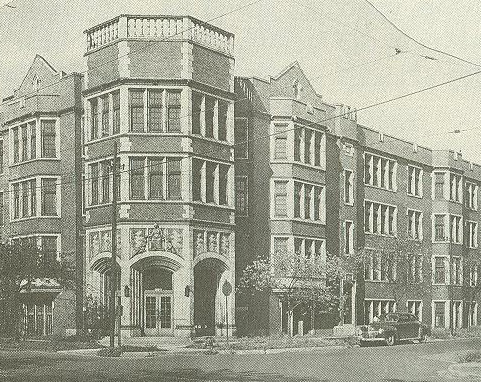
The Early Years: Caring for the Jewish Elderly in Chicago
Prior to CJE’s founding, there was a great deal of concern for the Jewish poor and elderly in Chicago. In 1859, the Bureau of United Hebrew Charities (known today as Jewish Federation of Metropolitan Chicago) was created to address these urgent community issues. Over time, the three existing senior homes—Home for Aged Jews/Drexel Home, Orthodox Jewish Home/BMZ, and Park View Home—closed or were sold as the needs of the elderly changed and the Jewish population moved to different areas of metropolitan Chicago.
Guided by Jewish values that instinctively motivated Jewish community leaders to care for the old, the Jewish Federation commissioned a report that recommended the formation of the Jewish Federation Gerontological Council, which was established in 1968. The Council published a well-documented report in 1970 which strongly suggested the creation of a health and human services agency designed specifically to meet the growing needs of the Jewish elderly.


In the Beginning: Founding CJE
CJE was first incorporated in 1971 as the Council for Jewish Elderly, becoming an affiliated agency of the Jewish Federation of Metropolitan Chicago, and commenced operation with the recruitment of a small 10-person staff.
Joseph Gidwitz was the founding President (now called the Board chair) and Ronald Weismehl was selected as CJE’s first Executive Director (now called the President). After a short time at Federation offices, CJE chose East Rogers Park as its center of operations and opened its first Service Center at Birchwood and Western.
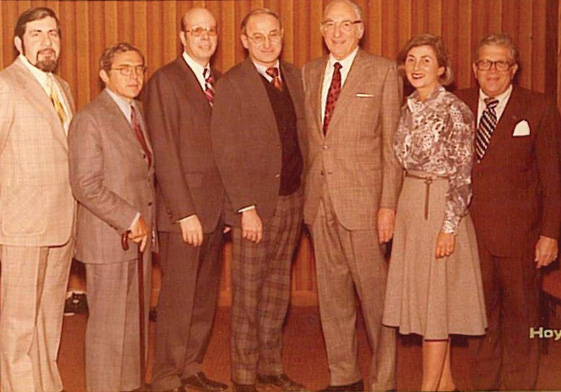

Original Services
Since its inception in 1972, CJE has brought more innovative community-based services into the Chicago area than any other provider of eldercare services.
Some of CJE’s original services are still provided today, including Home-Delivered Meals, Friendly Visiting, Information and Referrals, Counseling, and Legal Assistance.
CJE began its Transportation Services program with a single bus in June 1972 along routes in East Rogers Park. A grant from the Galter Foundation enabled CJE to expand this vital service for seniors. That first year, CJE served almost 3,000 people!
In the early years, CJE’s social workers were known to search among the park benches of Rogers Park through an outreach program to see if there were any older adults in need of help.


Expanding to New Locations
CJE grew as other service locations were added, including the South Side Senior Adult Center in 1975. In 1976, CJE purchased a building from AC Nielsen on Howard Street in Evanston, which became the site for CJE’s Adult Day Services in Evanston. The Morse Avenue Service Center also opened in 1979.
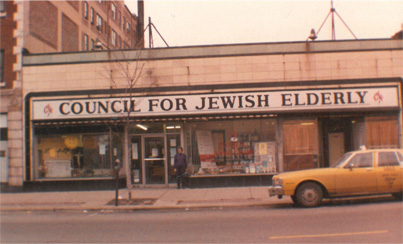

Moving into Affordable Housing for Seniors
A major concern for the Jewish community had always been providing affordable housing to the elderly and the poor. Thus, as CJE expanded into neighborhoods, the organization began to purchase apartment buildings to provide housing that would enable older adults to stay “in the neighborhood.” These apartments were in areas familiar to many residents, like Rogers Park. In 1972, CJE purchased both Farwell and Jarvis House.
Then in 1974, Levy House was purchased in a very desirable location near the lake. By 1981, Swartzberg House was added to CJE’s housing portfolio. As subsidized housing, rent at these CJE apartment buildings was considerably reduced for qualifying tenants.
Always innovative in its solutions to eldercare, CJE developed the Robineau Group Living Home (now Robineau Residence), which is a communal residence that was specifically designed to provide privacy but also encourage residents to socialize. Located on Kostner Avenue in Skokie, the residence opened in 1982 with private bedrooms and bathrooms for 24 residents. At the time, the college dormitory suite-style apartments—in which four residents shared a kitchenette and living room—was an innovative concept and very few apartment arrangements like it exist to this day.
CJE later decided to sell some of these apartment buildings, but CJE still owns and operates four independent living communities, including Robineau and Swartzberg.
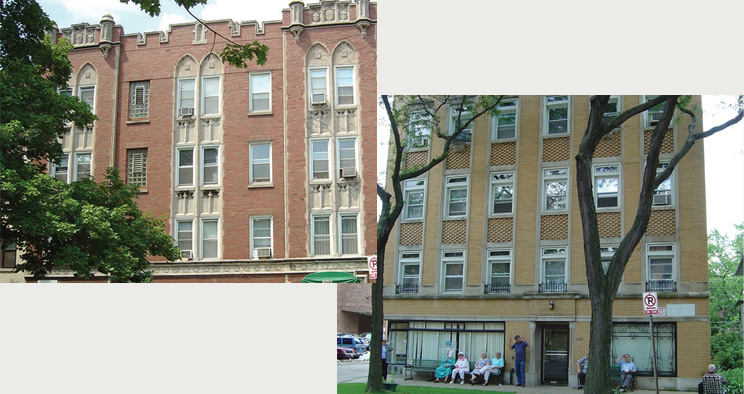
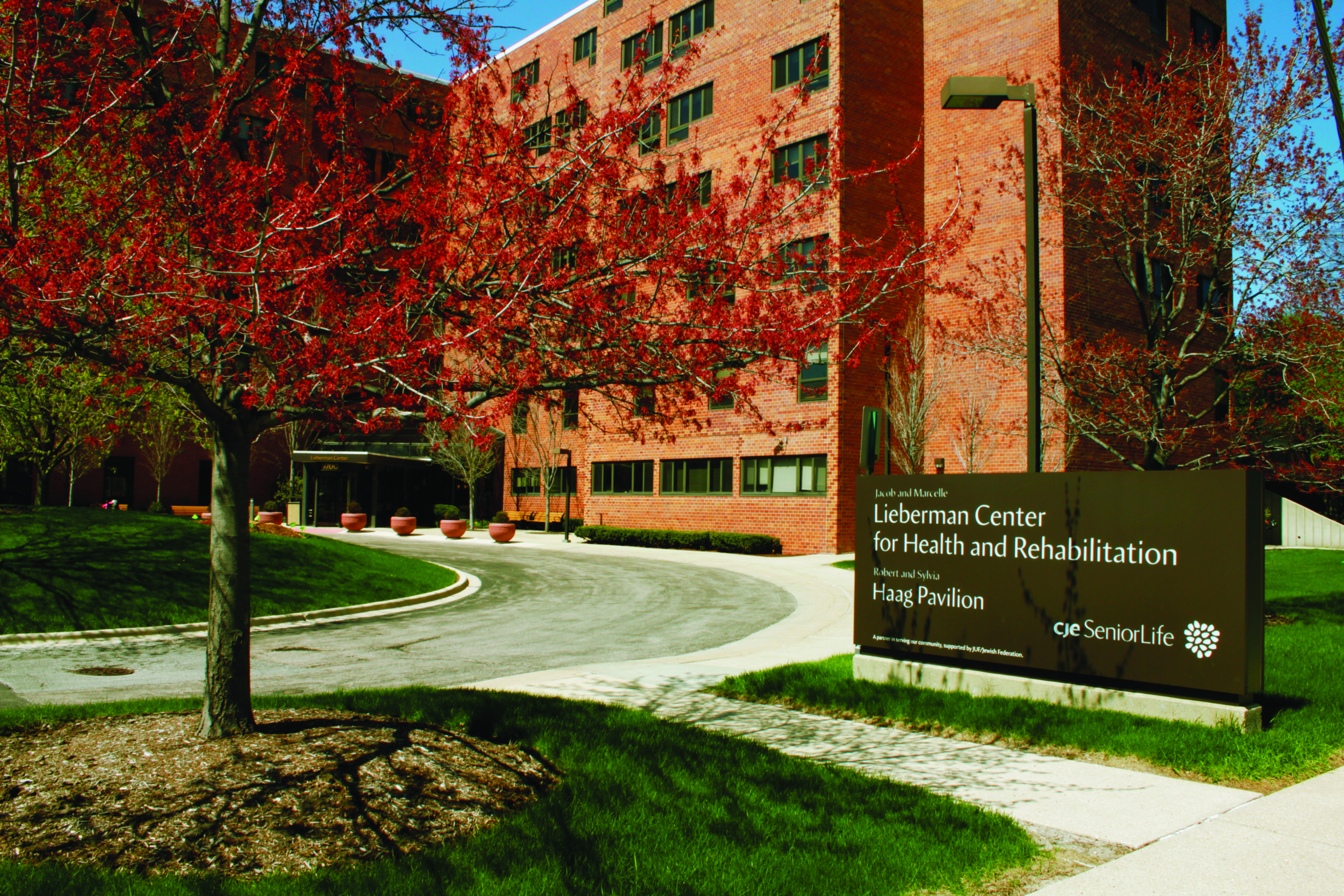
Lieberman Center: An Innovative, Residential Nursing Home
Originally named the Jacob and Marcelle Geriatric Health Centre, Lieberman Center honored the couple who provided the initial financial gift for it and a later endowment that sparked the Heritage Campaign to build the new nursing residence in 1978. Mrs. Lieberman wanted to endow a home because she recalled her mother’s care for elderly Orthodox Jews in the 1930s and 1940s.
The Lieberman Geriatric Health Centre (later Lieberman Center for Health and Rehabilitation) was a major undertaking for CJE. Construction began in 1979 and the nursing facility opened in 1981.
Designed by John Macsai, the building boasted 240 private rooms with adjacent baths—a unique feature for skilled nursing communities at the time. CJE ran Lieberman Center until 2020, when the difficult decision was made to transfer ownership to Legacy Healthcare.


CJE’s Early Programs
The times following 1972 could not have been easy for Chicagoans, with the oil crisis of 1973 and the resulting recession.
But CJE staff introduced a series of new programs that kept clients and participants enriched and spiritually engaged. Its Erev Shabbat Luncheon program, hosted by various synagogue sisterhoods, took place at CJE’s Neighborhood Centers from 1973 until each center was closed.
One of CJE’s earliest programs, Home-Delivered Meals, started in 1972. CJE also began preparing kosher food to be delivered to the residences of seniors living independently in 1982 on the north side of Chicago, Evanston, Skokie, and Lincolnwood. CJE was the only agency that provided kosher home-delivered meals in Chicago.
Volunteers have always been an essential part of CJE, providing significant hours of service each year. The initiation of a Volunteer Corps to help CJE implement services began in 1973, with individual volunteers taking responsibility for Home-Delivered Meals, Friendly Visiting, and Shopping Assistance.
Since 1972, CJE has been at the forefront of providing Counseling Services to older adults and their family members, who we now serve both in the community and in our residential settings. CJE has continued to staff its Counseling Services team with highly skilled social workers who provide individual psychotherapy and support groups.


In 1977, CJE established its first Day Care/Day Services Program, which had been recommended in the Gerontological Report.
Its purpose was to meet the needs of clients who had mental impairment, such as confusion or depression, or physical disabilities. It would be the precursor to CJE’s Adult Day Services in later years.
It is amazing how CJE evolved within its first decade and a half as an organization.

